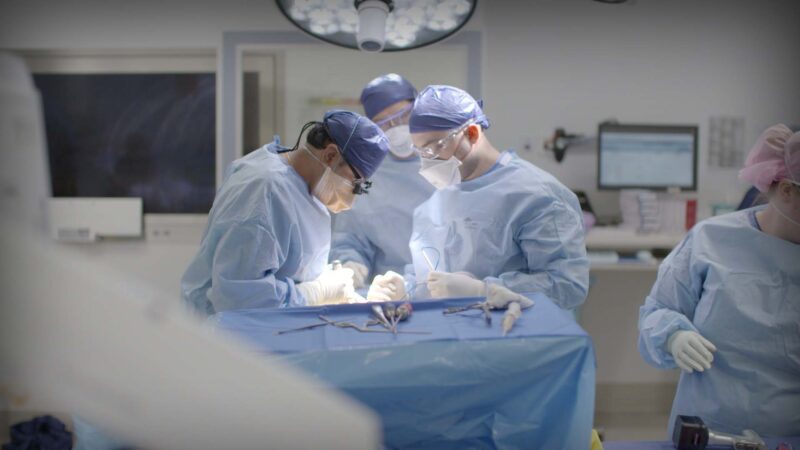The Victorian Comprehensive Cancer Centre Alliance, or VCCC Alliance for short, is a Victorian partnership of 10 research, academic and clinical institutions looking at improving cancer outcomes for patients:
- Peter MacCallum Cancer Centre
- The Royal Melbourne Hospital
- University of Melbourne
- The Royal Women’s Hospital
- WEHI
- The Royal Children’s Hospital
- Western Health
- St Vincent’s Hospital Melbourne and St Vincent’s Institute
- Austin Health and Olivia Newton-John Cancer Research Institute
- Murdoch Children’s Research Institute
The VCCC Alliance SKILLED clinical trial internships program is a pathway for scientists to build role-specific clinical trial knowledge, experience and in a clinical trials unit through theoretical and on-the-job training. The internship program is a 40 week intensive program to get science student interns job ready for clinical trial assistant and study coordinator internship roles.
The program is funded in part by MTPConnect’s $32 million REDI initiative, supported by the Medical Research Future Fund. Now into it’s 4th year, VCCC Alliance’s SKILLED Clinical Trials Internship program commenced in 2019 and by year end 2022 would have placed 77 interns into clinical trial units.
Australian Health Journal spoke with Chris Packer, Manager, SKILLED Clinical Trials Internship program at the VCCC Alliance about the need to build capacity of clinical trial units, especially with reductions on overseas travellers in the sector and other factors leading to gaps in the workforce.
In 2022, 22 intern have been placed in large tertiary facilities as well as in regional Victoria.
Australian Health Journal spoke with 2 recent interns about their experiences during and following the internship program:
- Dulash Fernando, Clinical Trials Assistant
- Rebecca Komesaroff, VCCC Skilled Intern (CTA)
Australian Health Journal also spoke to some of the host sites about the program and the important need to fill the clinical trial skills gap.
- Dr Sarah Rickard, Director Research Governance and Ethics, The Royal Melbourne Hospital
- Kate Scarff, Clinical Research Development Office Lead, Melbourne Children’s Trials Centre, Murdoch Children’s Research Institute
- Narelle McPhee, Cancer Research Manager, Bendigo Health
Narelle talks about the importance and uniqueness of the internship program for the staff in the Bendigo region. She sees the program as a strong partnership with VCCC Alliance, the intern and the clinical trials unit in Bendigo Health, that helps with future recruitment as well bringing new perspectives. There are opportunities in regional and rural locations undertaking clinical trials, and Narelle happily states, the interns they have previously hosted have gained employment in the region.
Internship evaluations by interns and the host sites in 2021 Net Promotor Scores (NPS) have shown high levels of satisfaction levels both from interns and host sites in the program. As further testament to its success, 95% of interns have gone back into the clinical trial sector since the commencement of the program.
Produced with assistance from:
ARCS Australia
You Might also like
-
Research funded to investigate early-onset bowel cancer progression
Bowel Cancer Australia recently announced a team led by Professor Michael Samuel as the successful applicant for a three-year $600k early-onset bowel cancer research project through the 2023 round of Cancer Australia’s Priority-driven Collaborative Cancer Research Scheme (PdCCRS).
-
Jack Lancaster, Evolution Surgical
Continuing the Australian Health Journal, People In Health Care series is Jack Lancaster, the CEO of Evolution Surgical, an Australian owned company established in 2014, specialising in spinal fusion implants and custom instrumentation.
Jack talks about how the company works closely with surgeons to design custom solutions manufactured to surgical requirements, and ultimately, to the benefit of the Australia patient.
-
Strong primary care nursing solutions for a healthier Australia
The CEO of Australian Primary Health Care Nurses Association (APNA), Ken Griffin spoke with Australian Health Journal about the following:
– APNA President Karen Booth representing Primary Care Nursing in the Australian Government led Strengthening Medicare Task Force
– The current key challenges in primary care nursing
– Programs on diversity and student placement proposed in APNA’s pre-budget submission to Federal Government
– A proposed initiative called Nurse-Supported Self-Care, with broadening role primary care nursing would play in the community
– Hopes for other health priorities addressed in the Federal BudgetIn the lead up to the Australian Federal Budget in May 2023, Australian Health Journal reached out to peak health industry bodies to hear about their priorities, either noted in pre-budget submissions lodged with Federal Government in January 2023 or in recent forums such as the Strengthening Medicare Taskforce.



